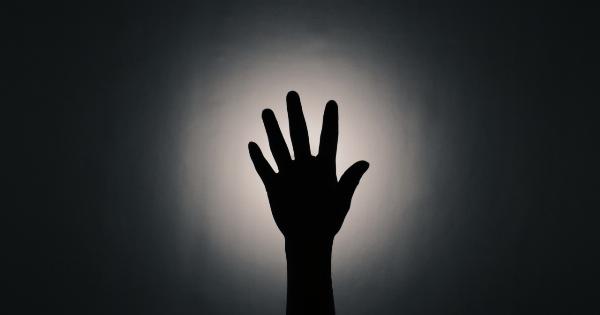Kissing has been a part of human culture for centuries. It regarded as the most intimate and passionate gesture of love. But have you ever thought about what happens in our bodies when we kiss someone?.
The science of kissing, also known as philematology, has recently caught the attention of many researchers. In this article, we explore what happens in our bodies when we kiss using scientific evidence.
The Importance of Kissing in Relationships
Kissing is an essential aspect of intimacy that strengthens the bond between partners. It is not only an expression of love, but it also affects our emotional, psychological, and physical well-being.
Studies have shown that kissing releases hormones such as oxytocin, which enhances the feeling of closeness between partners. It also reduces stress levels by increasing the production of endorphins, commonly known as the ‘feel-good’ hormone.
Kissing also has a significant impact on our immune system. According to a study conducted by the Netherlands Organisation for Applied Scientific Research, couples who kiss more often have similar oral bacteria, which boosts their immune systems.
The Anatomy of a Kiss
Kissing involves the coordination of various organs in the mouth, tongue, and throat. It is a complex mechanism that involves a total of 34 facial muscles and 112 postural muscles.
The act of kissing stimulates the sensory receptors in the lips, sending signals to the brain to release endorphins, dopamine, and oxytocin. This results in feelings of pleasure, arousal, and emotional closeness.
When lips first meet, nerve endings in the dermis layer of the skin send electrical signals to the brain. These signals then trigger a chain reaction of physical and chemical changes throughout the body.
The Science of Kissing: What Happens in Our Bodies?
Here is a breakdown of what happens in our bodies during a kiss:.
Step 1: The Lips
The lips are highly sensitive due to the presence of a large number of nerve endings, making them the primary sensory organ during kissing. As the lips touch, the brain receives signals of pressure, temperature, and moisture.
This sensory information then travels to various parts of the brain that regulates emotions, pleasure, and sexual desire.
Step 2: The Tongue
The tongue plays a crucial role in deepening the kiss and increasing intimacy. The movement of the tongue is controlled by 12 muscles that coordinate with the lips and cheeks to create a pleasurable feeling.
The tongue also helps to transmit sexual signals by touching the sensitive areas of the mouth.
Step 3: The Saliva
Kissing stimulates salivary glands to produce saliva, which helps to lubricate the mouth, preventing dryness.
Saliva also contains enzymes that break down starch and fats, leading to the production of slightly acidic compounds that can help to fight bacteria and maintain oral health.
Step 4: The Heart
As we kiss, our heart rate increases, and our breathing becomes heavier. This leads to an increase in oxygen and nutrients supply to the brain, reducing stress levels and promoting relaxation.
Step 5: The Hormones
Kissing stimulates the release of various hormones, including oxytocin, a hormone associated with trust, social bonding, and romantic attachment. It is also responsible for reducing stress, improving mood, and enhancing sexual desire.
The Benefits of Kissing
The benefits of kissing go beyond enhancing emotional bonding and sexual pleasure. Here are some of the benefits:.
1. Stress Relief
Kissing helps to reduce the levels of cortisol, the stress hormone, and increase the production of endorphins, which lead to feelings of relaxation and happiness.
2. Boosts Immune System
Kissing can help to improve our immune systems by exposing us to different bacterial strains. It also enhances the production of antibodies that fight off infections and diseases.
3. Burns Calories
Kissing can be an effective form of exercise, where it can burn between 2 and 6 calories per minute, depending on the intensity of the kiss.
4. Lowers Blood Pressure
Kissing can also help to reduce blood pressure, which can help reduce the risk of heart diseases, stroke, and other related illnesses.
Conclusion
Kissing is a universal expression of love and affection that has a significant impact on our emotional, psychological, and physical well-being.
Understanding the science of kissing can help enhance our intimate relationships and promote overall well-being. So, next time you kiss someone, remember the positive effects it has on your body and mind!.


























